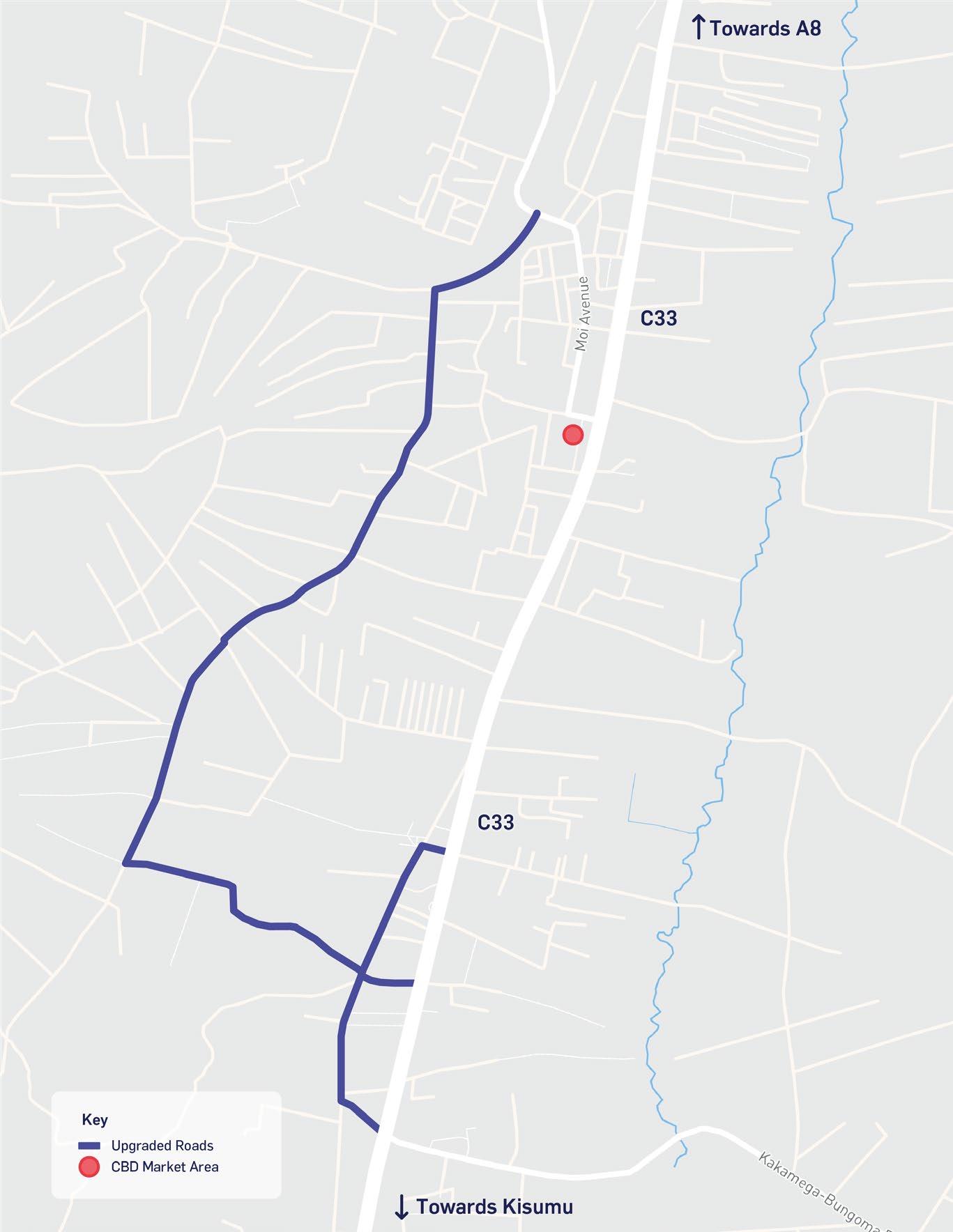3 minute read
Table 2-2 – Business identified challenges to growth
State of business in Bungoma Municipality
Seventy business, reflecting Bungoma’s main sectoral activities, were consulted through in-depth interviews. Many of these were small businesses or independent workers but large employers (up to 330) were also consulted, including health and education facilities, and hotels. The analysis below has been utilised to inform the understanding of the business environment, socio-economic inclusion, key challenges, and enablers.
Most businesses are operating locally, selling their goods or services in Bungoma Town and the wider County. Amongst the businesses consulted, there was also a considerable number of businesses that exported goods to outside of Kenya, which is linked to Bungoma’s strategic location at the border with Uganda, Tanzania or out through Mombasa. Most businesses sell to individual local customers, however, there are a few businesses who sell to other businesses.
Delivery of goods is in most cases completed by others, this is because many of the businesses interviewed did not deliver their goods. This was followed by motorbike and truck. To a lesser extent, businesses use public modes of transport such as matatus. Marketing techniques are fairly basic with word of mouth being the most-used form of marketing, followed by social media and local media.
A significant proportion of businesses that were interviewed indicated that they expect to expand and have a positive outlook for the future whilst some indicated that they intend to continue their operations as usual.
Table 2-2 – Business identified challenges to growth Top challenge mentioned Detail
Insufficient infrastructure Inadequate water supply in terms of quantity for community utilization was the most frequently reported challenge. Poor power supply and frequent blackouts pose additional costs to businesses and make adequate storage of goods challenging. Poor road quality and reliability results in increases in transportation times and costs for local businesses, issues with Bungoma’s arterial roads and also longer distance roads to Nairobi were highlighted. Some of the market facilities are reported to be inadequate lacking shades, lighting, storage, utilities and drainage. Post-harvest losses Some of the business in agriculture, livestock, retail or distribution reported high levels of spoilage along the supply chains after harvest. The main causes being a lack of dry or cold storage, long transport times to Mombasa or Uganda, and long processing times in the ports of Mombasa.
Flooding During the business interviews, flooding was said to impact mainly the infrastructure such as roads and inhibit business’ accessibility, the markets and key commercial areas were also said to suffer from poor drainage and flooding. Limited access to finance Many businesses reported a lack of capital and access to finance to expand their business, undertake maintenance and repairs, invest in machinery or restock goods. This seemed to be as a result of a lack of capital in the banks that exist in Bungoma, and insufficient collateral of those looking to borrow. Many respondents reported a need for affordable loans with little or no interest repayments. Insecurity and crime Insecurity and crime were reported by several businesses to be a challenge in Bungoma, where many of them reported that they frequently experienced theft, in particular, youths. This included certain areas being dominated by cartels and theft from youths, both local or from across the border.
Governance, regulation and taxation
COVID-19 During the business interviews some reported that business can be challenged by high taxation by the County government and national government. A lack of regulation of the markets and bus station area was mentioned, which was resulting in the exploitation of matatu drivers and hawkers.
COVID-19 was raised as a key challenge for business activities in Bungoma. The impacts of the pandemic have been discussed in further detail in section 1.6.1.
Source: Atkins
2.4 Infrastructure Overview
The Municipality’s infrastructure has been assessed and evaluated in its current provision and state to identify strengths and critical gaps. The assessments also reviewed proposed or planned projects, for how they respond to Bungoma Municipality’s infrastructure challenges. Overall, to address the existing infrastructure challenges and barriers to growth, Bungoma Municipality will need to upgrade existing infrastructure and commit to new projects to support economic growth and development. Key infrastructure gaps identified are:











